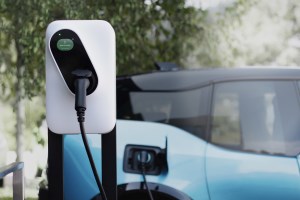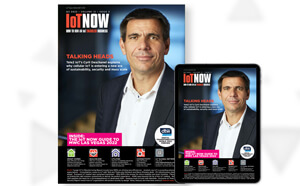Bellevue, United States – T-Mobile unveiled advanced industry solutions, an end-to-end suite of connectivity, compute, devices, and applications needed to make smart cities, autonomous factories, and more, possible. Businesses and municipalities no longer have to wade through endless options of technology vendors because the un-carrier is bringing it all together.
Right now, businesses of all sizes are looking to new technology to help them react quickly to changing customer demands, economic uncertainty, tight margins, strained supply chains, and the proliferation of devices outside the enterprise. So, it’s no surprise that manufacturing companies are dedicating 36% of their factory investments toward “smart” manufacturing, or that North America’s smart retail market is predicted to grow from [$7.5 billion (€7.68 billion)] in 2020, to [$20.8 billion (€21.31 billion)] in 2025.
That’s why T-Mobile is taking the company’s 5G advanced network solutions to the next level with industry specific solutions for retail, manufacturing, logistics, and smart cities. With these end-to-end packages, T-Mobile sources and manages all the connectivity, compute, devices, and applications needed from the network core to a heat mapping sensor on the retail floor.
“We are on the precipice of billions of AI-powered devices, all connected by 5G with efficient application processors, all converging to provide intelligent data-driven insights. Technologies are pushing the limits of most companies’ IT organisations. That’s why we’ve been working closely with many of these organisations to develop specific solutions that address their unique challenges,” says Callie Field, president, T-Mobile Business Group. “Our Advanced Industry Solutions enable easier and simpler implementation – from vision to ROI – all backed by an ecosystem of world-class partners and America’s leading 5G network.”
It’s not easy to design a next-generation manufacturing plant or smart city. Business leaders need to consider the right connectivity, hardware, software, and devices, which all come with their own web of infrastructure and vendors. Right now, to deploy a cutting-edge retail solution that does everything from parking space utilisation to asset loss prevention, to temperature monitoring businesses could have to work with as many as 10 or more vendors and partners, which is immensely time-consuming, considering that it takes an average of six months to onboard ONE vendor. And that’s before any revenue-producing work can happen.
About T-Mobile advanced industry solutions
Advanced Industry Solutions simplifies the process by managing all the pieces, so customers have only one team and company to work with. One company to be accountable, one company to provide support, and one company to deliver results. At launch, the solution will cover four major early adopter categories like logistics, manufacturing, retail, and smart cities – with more to come! T-Mobile has done the heavy lifting of pre-selecting, certifying, and combining all the connectivity, compute, devices, and applications into a single solution.
Here are some of the ways the solutions come to life across each of the four industries:
- Retail: Businesses can get the same kind of data about customers in-store as they do with customers online, including capturing things like foot traffic, dwell time, and peak hours. It can also help businesses gauge the effectiveness of marketing efforts like window merchandising and in-store kiosk displays. This is all made possible by industry-specific solutions like Retail Lite, a retail analytics offering from FastSensor.
- Manufacturing: Customers can automate clunky and outdated processes. Elements like heatmap activity tracking can help them optimise the layout of a plant. And augmented reality technology from Taqtile – a graduate of T-Mobile’s 5G open innovation lab – uses AR to improve employee training and empower deskless frontline workers to complete complex tasks more efficiently, completely, and safely.
- Logistics: Companies can address lingering supply chain issues from the pandemic and other world events. The high bandwidth and low latency capabilities of 5G advanced network solutions can help improve bottlenecks through applications like connected vehicles, with fleet management and telematics, asset monitoring, and tracking from companies like Geotab.
- Municipalities: The smart cities solution includes elements like smart monitoring for enhanced security, parking and traffic flow optimisation for a better commute experience, and stronger event and open space connectivity.
With 5G network, T-Mobile delivers an set of connectivity options for businesses and government organisations:
- T-Mobile’s 5G advanced network solutions offer a variety of supercharged connectivity options for lower-latency and higher bandwidth – T-Mobile public network, a hybrid mobile network and a private mobile network – with the option to add compute to any of these.
- T-Mobile business internet, a 5G fixed wireless solution, simplifies connectivity for businesses with multiple retail or office locations nationwide, delivering speed, flexibility, enhanced security, and cloud-delivered managed services for configuration, monitoring, and analytics.
- T IoT, a comprehensive enterprise solution for global IoT connectivity, streamlines global IoT connectivity, platform management, and support.
And the best part is that T-Mobile experts will be ready to advise at every step in the process – including design, deployment, trouble shooting, and ongoing management of the network solutions. Now with ready-to-deploy advanced industry solutions, T-Mobile is removing yet another barrier to entry to help businesses embrace technology solutions of the future.
For more information on T-Mobile’s advanced industry solutions, visit:
Follow T-Mobile’s official Twitter newsroom @TMobileNews to stay up to date with the latest company news.
See 5G device, coverage, & access details at T-Mobile.com. Business internet: Not available in all areas; addresses ineligible for 5G small business internet may be eligible for 4G LTE or other fixed wireless options.
Comment on this article below or via Twitter: @IoTNow_OR @jcIoTnow







